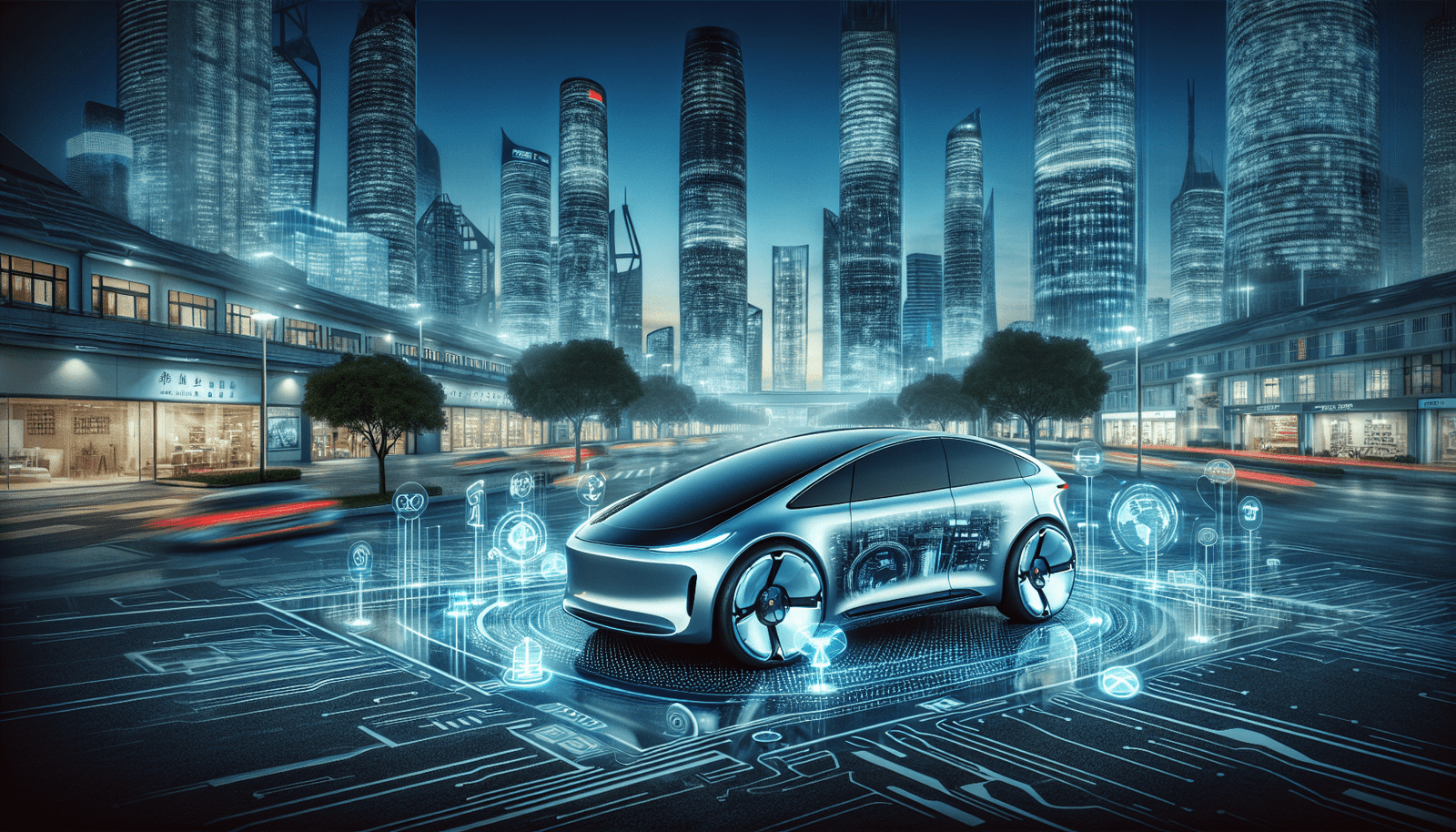Imagine a world where cars can communicate with each other, automatically navigate through crowded city streets, and even detect and prevent accidents before they happen. Sounds like something out of a science fiction movie, right? Well, the future of smart car technology is not as far-fetched as you may think. With advancements in artificial intelligence, connectivity, and autonomous driving, the possibilities for the future of smart car technology are endless. In this article, we will explore some of the exciting developments that are on the horizon, giving you a glimpse into what you can expect from the cars of tomorrow.

Introduction to Smart Car Technology
Smart car technology refers to the integration of advanced technologies and features in automobiles to enhance safety, convenience, and overall driving experience. This technology encompasses various aspects such as autonomous driving, artificial intelligence, connectivity, augmented reality, electric and hybrid vehicles, smart car security and privacy, user experience and interfaces, smart car infrastructure, and sustainable and eco-friendly technologies. The evolution of smart car technology has revolutionized the automotive industry, promising a future that is safer, more efficient, and more environmentally friendly.
Advancements in Autonomous Driving
Autonomous driving, also known as self-driving or driverless technology, is a significant advancement in smart car technology. It enables vehicles to operate without human intervention, relying on advanced sensors, cameras, radar systems, and artificial intelligence algorithms. Autonomous driving technology has the potential to revolutionize the way we travel, reducing accidents caused by human error and increasing efficiency on the roads. The Society of Automotive Engineers (SAE) has defined six levels of autonomy for vehicles, ranging from Level 0 (no automation) to Level 5 (full automation).
Artificial Intelligence in Smart Cars
Artificial Intelligence (AI) plays a crucial role in enabling various features and functionalities in smart cars. AI algorithms analyze data from sensors and other sources to make real-time decisions, improving safety and convenience for drivers and passengers. Smart cars equipped with AI can detect and respond to changing road conditions, predict and prevent potential accidents, and assist drivers with navigation, entertainment, and personalization. AI-powered features in smart cars include adaptive cruise control, lane-keeping assist, automatic emergency braking, and voice-controlled virtual assistants.

Connectivity and Internet of Things
Smart cars are increasingly becoming integrated with the Internet of Things (IoT) ecosystem, allowing them to connect to other devices, infrastructure, and networks. This connectivity enables various benefits such as real-time traffic updates, remote monitoring and control, and enhanced infotainment systems. Connected cars can communicate with smart traffic lights, parking systems, and other vehicles on the road, leading to improved efficiency, reduced congestion, and safer driving experiences. However, challenges and concerns arise regarding data security, privacy, and potential vulnerabilities to cyber attacks.
Augmented Reality and Smart Car Displays
Augmented Reality (AR) is gaining prominence in smart car technology, enhancing the way drivers interact with their vehicles and the road. AR overlays digital information on the real-world environment, allowing drivers to see relevant information without distraction. Smart car displays leverage AR to project vital information such as navigation directions, speed limits, and hazard alerts onto the windshield or dashboard, improving situational awareness and reducing driver distraction. AR technology also enables innovative features like virtual test drives and personalized virtual showrooms.
Electric and Hybrid Vehicles
The transition from traditional internal combustion engine vehicles to electric and hybrid cars is a significant trend in smart car technology. Electric vehicles (EVs) utilize electric motors powered by batteries, eliminating harmful emissions and reducing dependence on fossil fuels. Hybrid vehicles combine electric motors with traditional engines, providing improved fuel efficiency and lower emissions. The benefits of electric and hybrid cars include reduced air pollution, quieter operation, and potential cost savings on fuel and maintenance. However, the widespread adoption of EVs faces challenges related to charging infrastructure and battery technology advancements.
Smart Car Security and Privacy
As smart cars become more connected and reliant on digital technologies, cybersecurity threats become a significant concern. Smart car systems can be vulnerable to hacking, leading to potential risks like unauthorized access, data breaches, and remote control manipulation. Securing smart car systems is crucial to safeguarding user safety, privacy, and the integrity of vehicle operation. Measures such as encryption, authentication protocols, and regular software updates are essential to protect against cyber threats and ensure trust in smart car technology.
Smart Car User Experience and Interfaces
Creating intuitive interfaces and seamless user experiences is an essential aspect of smart car technology. User interfaces in smart cars should be easy to understand, navigate, and operate, minimizing driver distraction and enhancing safety. Voice assistants and natural language processing enable drivers to interact with their vehicles using voice commands, reducing the need for manual input and enabling hands-free operation. Personalization and customization features allow drivers to tailor their smart car experience to their preferences, from personalized seating positions to music preferences and climate control settings.
Smart Car Infrastructure and Smart Cities
Smart cars are not isolated entities but are part of a broader ecosystem that includes smart city infrastructure. Integrating smart cars into smart cities enables improved traffic management, optimized routing, and enhanced collaboration between vehicles and city systems. Real-time data from smart cars can be used to monitor traffic patterns, identify congestion hotspots, and implement dynamic traffic control measures. This collaboration between smart cars and smart cities promotes more efficient transportation networks, reduces environmental impacts, and enhances the overall quality of life for residents.
Sustainable and Eco-Friendly Technologies
Efforts towards sustainability and environmental friendliness are driving innovations in smart car technology. Electric and hybrid vehicles reduce greenhouse gas emissions and dependence on fossil fuels, contributing to the global efforts to combat climate change. Moreover, the use of renewable energy sources to power smart cars and the adoption of eco-friendly materials in vehicle manufacturing further minimize the environmental impact. The development of more efficient battery technologies and recycling practices also contributes to the sustainability of smart car technology and the automotive industry as a whole.
In conclusion, smart car technology is rapidly evolving and promising a future that is safer, more efficient, and more environmentally friendly. Advancements in autonomous driving, the integration of artificial intelligence, connectivity and IoT, augmented reality displays, the transition to electric and hybrid vehicles, smart car security and privacy measures, enhanced user experiences and interfaces, integration with smart city infrastructure, and sustainability efforts are all shaping the future of smart car technology. With continued innovation and collaboration, we can expect smart cars to revolutionize the way we travel and contribute to a more sustainable and connected world.

